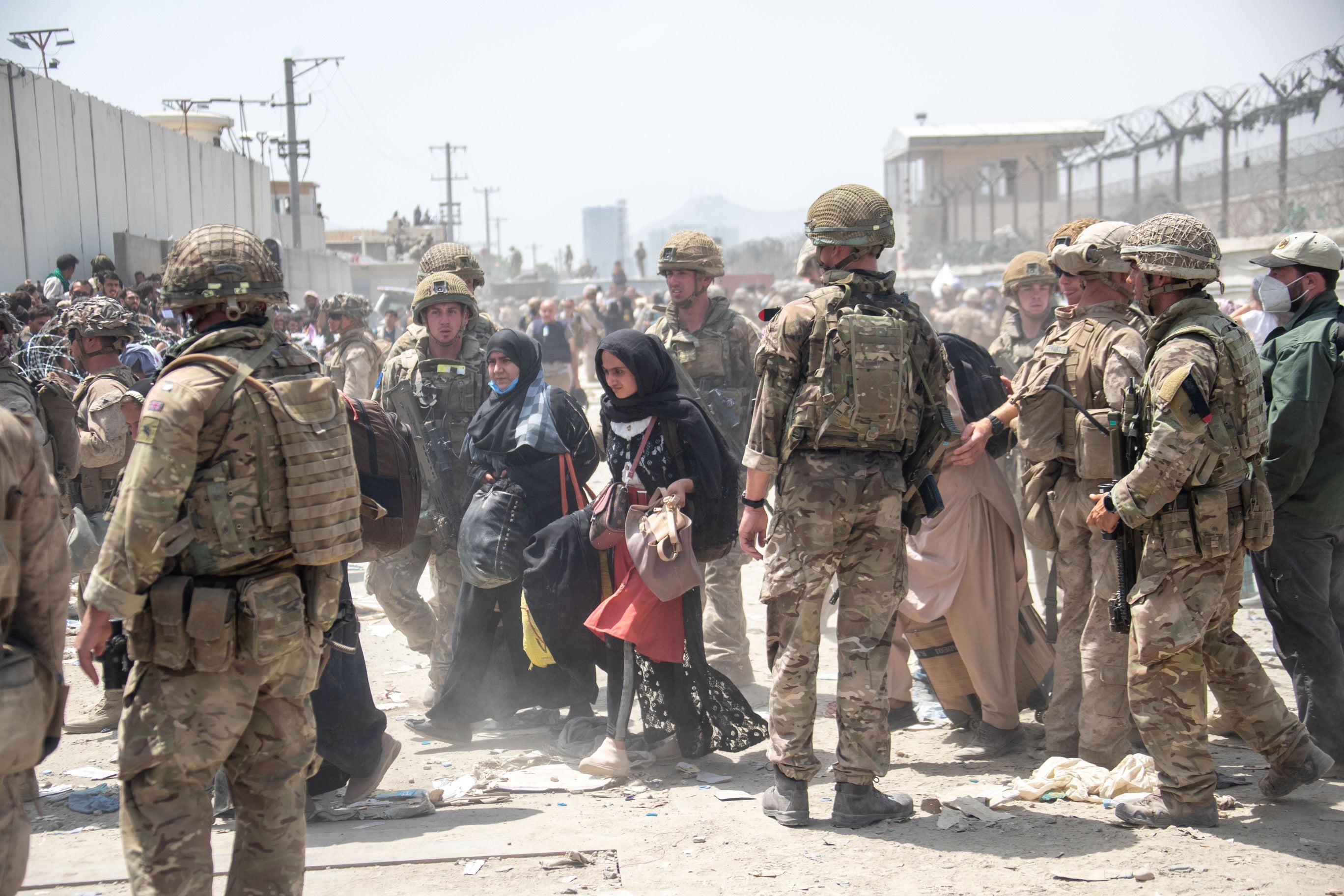Sunak left thousands of Afghans eligible to come to the UK stranded in Pakistan to save money, court hears
Exclusive: Home secretary Suella Braverman heard of the decision through ‘chinese whispers’, lawyers said
Your support helps us to tell the story
From reproductive rights to climate change to Big Tech, The Independent is on the ground when the story is developing. Whether it's investigating the financials of Elon Musk's pro-Trump PAC or producing our latest documentary, 'The A Word', which shines a light on the American women fighting for reproductive rights, we know how important it is to parse out the facts from the messaging.
At such a critical moment in US history, we need reporters on the ground. Your donation allows us to keep sending journalists to speak to both sides of the story.
The Independent is trusted by Americans across the entire political spectrum. And unlike many other quality news outlets, we choose not to lock Americans out of our reporting and analysis with paywalls. We believe quality journalism should be available to everyone, paid for by those who can afford it.
Your support makes all the difference.Rishi Sunak left thousands of Afghans eligible to come to the UK stranded in Pakistan hotels in a bid to save money, the High Court has heard.
Around 2,300 Afghans who worked alongside British armed forces have been stuck in hotels in Islamabad for months after the UK stopped chartering flights last November and insisted families must find their own place to live in Britain before relocation.
Two of those stranded in Pakistan are taking legal action against the prime minister, home secretary, defence secretary and foreign secretary over the government’s failure to relocate them. In a hearing at the High Court on Thursday, lawyers for the pair said they had been living with their families in UK government-funded hotels in Islamabad for seven months and 11 months respectively.
Pakistan police have already stormed one of the hotels housing the UK-bound Afghans, arresting several whose visas had run out. The authorities have also issued an ultimatum to Afghan asylum seekers in the country without legal documents, saying they must leave by 1 November.
Tom de la Mare KC, representing the Afghan refugees, said the prime minister halted the use of hotels for Afghans coming to the UK in late November 2022 in a bid to save money by keeping them out of hotels. The decision prompted the Ministry of Defence (MoD) to stop flights bringing people to the UK from Pakistan – leaving families stranded, at risk of deportation back to Afghanistan and subsequent retaliation from the Taliban.
A November email from the prime minister’s office said Mr Sunak wanted to “manage the flow” of people eligible to come to the UK under the Arap scheme for those who have worked with British forces, so they could move straight into MoD accommodation instead of hotels.
It continued: “The expectation is that this should represent an overall net saving to the taxpayer”. Concerns were then raised that there was not sufficient accommodation for all the Afghans eligible to come to the UK.
Since that decision was made, very few families have been brought to the UK because there is no accommodation for them.
Mr De La Mare said they had not been made privy to what material, if any, the prime minister had before him before he made the decision. He added: “The prime minister is in fact the central decision maker and we know nothing at present of the material before him. We can only infer that it did not consist of the consequences on those who are living in Pakistan in hotels.”

He added: “The direction was to the MoD initially, and reached the home secretary by internal Chinese whispers.”
The government told the court that it was “a high-level policy decision relating to the proper expenditure of public funds”.
Mr De La Mare said his clients could not leave the hotel they were living in for fear of arrest by Pakistan police and attack. He said the government was “requiring somebody to live effectively in a comfortable prison … but without the things a prison would provide with, exercise, education or diverting things to do”.
The Afghans also need money while they are waiting, such as help to buy children’s clothes, he argued. Over a third of the children living in the hotels have been living without education for six to twelve months, lawyers said.
The government argued that cash payments were not needed and said it had no obligation to deliver education to the children who were waiting.
Following the Pakistan government’s crackdown on Afghan refugees, the UK government has started matching eligible families to MoD accommodation in Britain. Since 2 October, 59 people have been brought from Pakistan and the government anticipates around 470 will be relocated by the end of the month.
That would leave around 1,900 people still in Pakistan when the authorities 1 November ultimatum passes, Mr de la Mare said.
The court also heard that home secretary Suella Braverman made a decision on 26 June to resume the issuing of visas to Afghans eligible to come to the UK. The government admitted that it was “not ideal for [Afghans eligible for UK] to be living in hotel accommodation in the long-term” but said they were adequate “to occupy in the exceptional circumstances”.
Veterans minister Johnny Mercer told parliament in March that the government’s priority was “to ensure that they can enter suitable accommodation, which is the right thing for families”.
“We have a duty to end the practice of Afghan families living in hotels in the UK. That is in the best interest of families and individuals,” he said.
Judge Mr Justice Chamberlain agreed the remainder of the case would be heard at a later date.




Join our commenting forum
Join thought-provoking conversations, follow other Independent readers and see their replies
Comments